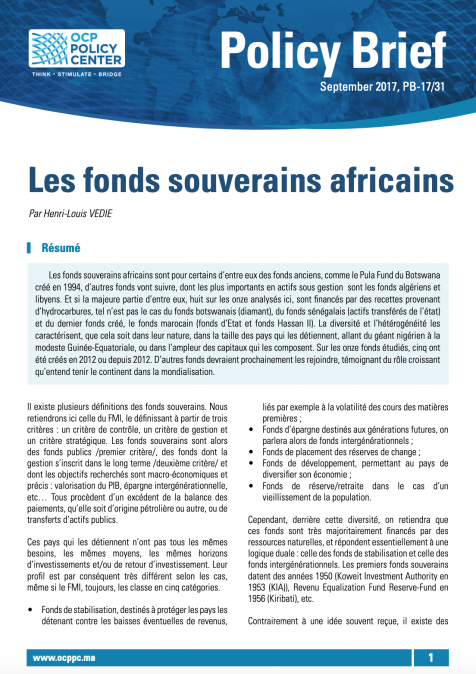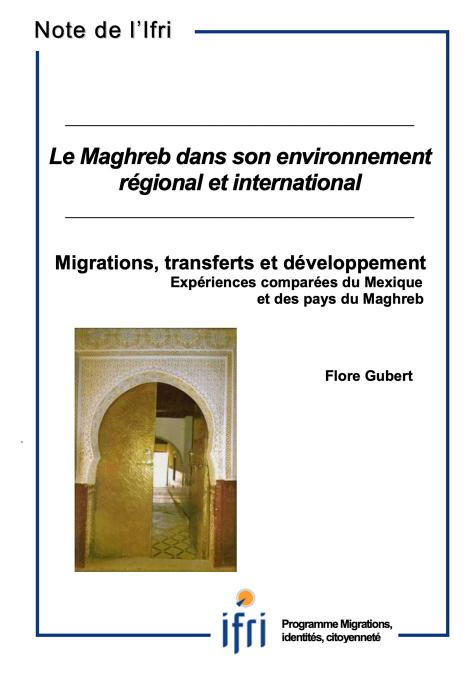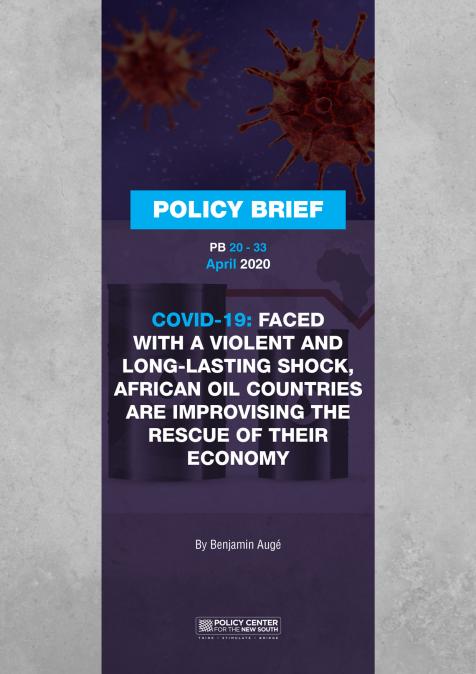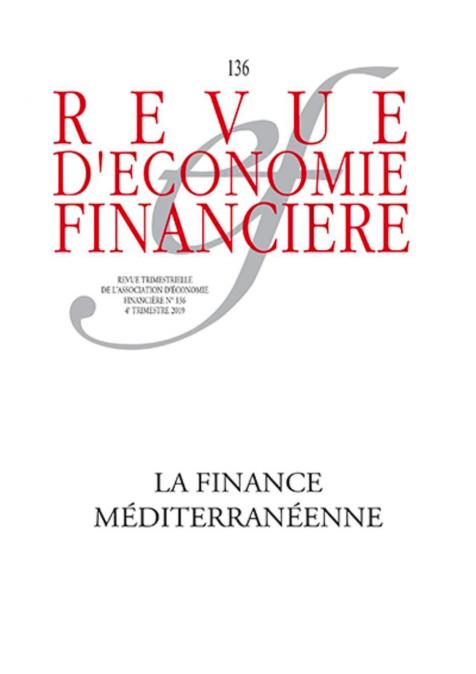Publications /
Policy Brief
Les fonds souverains africains sont pour certains d’entre eux des fonds anciens, comme le Pula Fund du Botswana créé en 1994, d’autres fonds vont suivre, dont les plus importants en actifs sous gestion sont les fonds algériens et libyens. Et si la majeure partie d’entre eux, huit sur les onze analysés ici, sont financés par des recettes provenant d’hydrocarbures, tel n’est pas le cas du fonds botswanais (diamant), du fonds sénégalais (actifs transférés de l’état) et du dernier fonds créé, le fonds marocain (fonds d’Etat et fonds Hassan II). La diversité et l’hétérogénéité les caractérisent, que cela soit dans leur nature, dans la taille des pays qui les détiennent, allant du géant nigérien à la modeste Guinée-Equatoriale, ou dans l’ampleur des capitaux qui les composent. Sur les onze fonds étudiés, cinq ont été créés en 2012 ou depuis 2012. D’autres fonds devraient prochainement les rejoindre, témoignant du rôle croissant qu’entend tenir le continent dans la mondialisation.





